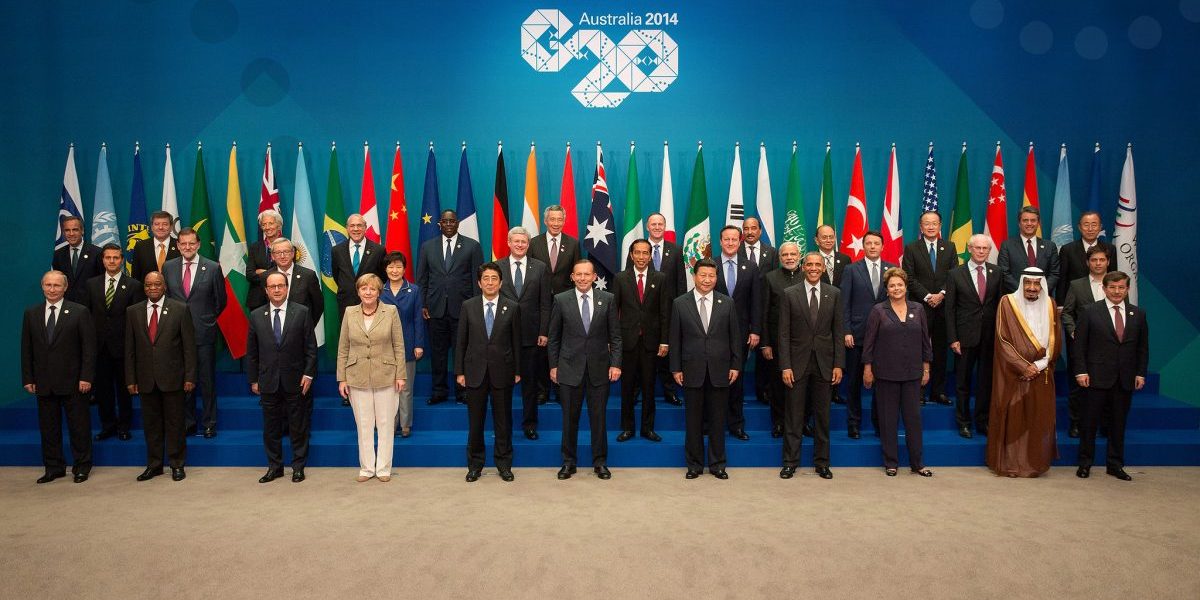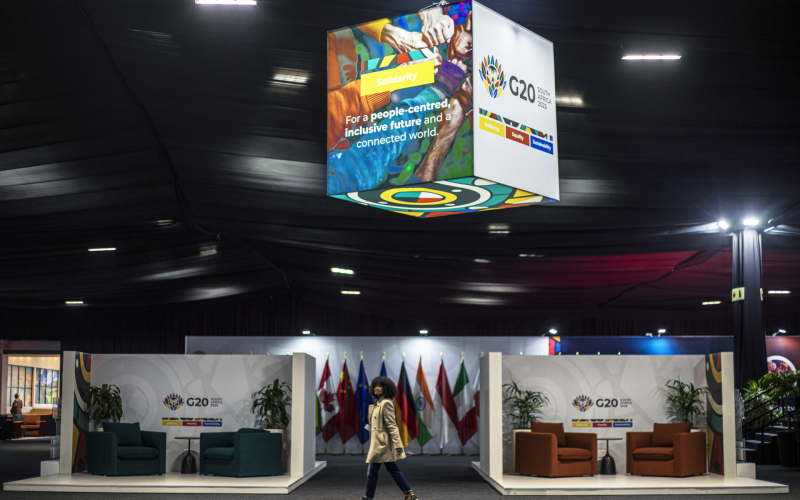For African governments and civil society organizations, any diversion which focuses attention on issues of social justice will be welcome. Unsurprisingly, most leaders of G20 nations are primarily concerned with resolving the difficulties which the global economic crisis creates for the people who voted them into power. The challenges of rescuing banks, restoring confidence in the financial sectors of advanced economies and stimulating sustainable economic growth will top discussions among leaders whose economies produce 85 percent of global output.
Yet for those who want a more just and equitable global economic order, the summit should also be an opportunity for soul searching. In a letter to British Prime Minister Gordon Brown, Pope Benedict XVI captures concerns expressed by civil society in general during the lead up to the summit: that the economic crisis “must prompt a profound reflection among the summit participants, since those whose voice has least force in the political scene are precisely those who suffer most from the harmful effects of a crisis for which they do not bear responsibility.”
The Pope also makes a specific call to global leaders to keep Africa on its agenda, echoing the plea of Ethiopian Prime Minister Meles Zenawi and Liberian President Ellen Johnson Sirleaf for reforms which it easier for countries to access development aid from the World Bank.
Adding academic weight to the advocacy of civil society and African governments, policy think tanks argue that Africa is critical to the long-term recovery of the global economy. In a recent publication, the respected British organization, the Overseas Development Institute, makes an economic case to back up the moral argument, suggesting that a meagre U.S. $50 billion would be enough to help developing economies create new markets for G20 nations.
Few disagree that the G20 is a club which can and should play a more significant role in Africa’s development. Nevertheless, the primary responsibility for resolving Africa’s problems remains on the shoulders of the continent’s own leaders. Indeed, this was the thinking behind initiatives such as the flagship economic development programme, the New Economic Partnership for Africa’s Development (NEPAD).
African leaders have, however, failed to inspire confidence in their ability thus far to develop “African solutions to African problems.” Among a long list of well-meaning development and governance initiatives which the continent has come up with to take ownership of its own development, it has identified 20 critical infrastructure programmes. But it has battled to raise and manage the financial and human resources needed to bolster them.
More importantly, African governments have failed to be aggressive enough in establishing standards of good governance, thus hindering the creation of conditions conducive to economic growth. African governments continue to rank high among those who have the most cumbersome regulatory environments in which to do business. Only three African countries adhere to standards of governance that are investor-friendly and conducive for economic growth, according to a recent World Bank “Doing Business” rating.
Commitment to clean government remains weak despite some noteworthy attempts to combat corruption and encourage transparency. Political leaders are often hostile to transparent governance and determined to stifle watchdog bodies and oversight institutions committed to open government. High levels of corruption lie at the heart of our most pertinent economic problems.
To their credit, more than half of Africa’s governments have demonstrated at least to some degree a symbolic commitment to good governance through initiatives such NEPAD’s African Peer Review Mechanism. But if sustainable and meaningful solutions to Africa’s most pressing problems are to be found, its leaders and activists should not look primarily to crumbs falling off the G20’s table. They must rather push for the fulfilment of commitments to develop Africa already in place and, more critically, they must clean up government and governance.








